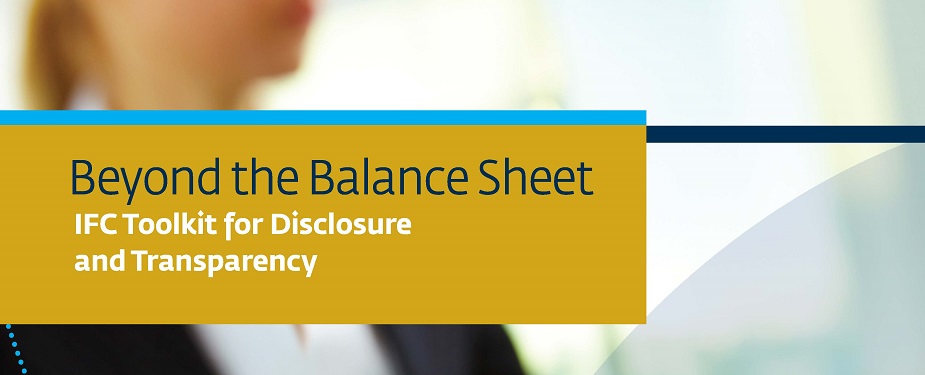
Strong local capital markets are essential for a thriving private sector. In developing countries, capital markets—many still in their infancy—hold great potential to channel private capital toward priority development needs and help companies obtain long-term financing.
Before capital can flow to emerging markets, however, investors need to better understand and trust these markets. They need robust information that is complete, accurate, and reliable in accordance with accepted international practices so they can make sound investment decisions.
The reason? Adhering to high standards of disclosure and transparency can mitigate some of the inherent risk in investing in emerging and frontier markets—weaker public institutions and governance, heightened social and environmental risk, and smaller companies with controlling shareholders. In turn, this can encourage more investors to consider adding well-governed emerging market companies to their investment portfolios.
Toolkit responds to need for better information
IFC’s new Disclosure and Transparency Toolkit is designed to meet investors’ need for better information—the most recent addition to its suite of innovative tools that are designed to unlock private sector investment.
The toolkit does this by offering concrete step-by-step guidance that helps companies customize their disclosure of strategic, governance, and performance information in a progressive way-- depending on size, organizational complexity, and operational context—while ensuring that the information is thorough and reliable. By using the toolkit, companies can develop an integrated and comprehensive annual reports, combining relevant material environmental, social, and governance (ESG) information increasingly sought by investors and other stakeholders.
What is new and different about this toolkit is that it reflects investors’ views of what drives corporate value, such as the impact of environmental and social risks on a company’s strategy, governance, and performance. It is grounded in IFC’s experience as an investor and based on IFC’s Environmental and Social Sustainability Standards and Corporate Governance Methodology. It builds on and integrates internationally recognized reporting standards and practices, legal requirements and best practices in preparing comprehensive integrated annual reports.
This new holistic ESG approach is used in evaluating IFC’s own prospective investee companies and in its advisory work with regulators and stock exchanges on listing rules, reporting guidelines, codes and others.
Collaborative effort to develop and implement the new toolkit
The result of a remarkable collaboration involving more than 100 representatives of development partners and key capital market players such as investors, regulators, stock exchanges, asset managers and index providers, the new toolkit specifically addresses the unique circumstances of companies in emerging markets.
These partnerships are on-going, even as the toolkit is rolling out. IFC is working with World Bank colleagues as well as the UN Sustainable Stock Exchanges initiative to help member exchanges develop their own ESG/sustainability reporting guidelines.
Meanwhile, in countries like China, Kenya, the Solomon Islands, and Timor-Leste, companies are already making use of the tools as they prepare their annual reports. And in Kazakhstan, Kenya, and the Philippines, the stock exchanges are updating their reporting guidelines based on the guidance provided in the toolkit. Other stock exchanges have indicated an interest using the Toolkit, including those in Egypt, Indonesia, Chile, Bangladesh, Jordan and Vietnam. Several development finance institutions have said that the toolkit will be useful to them as well.
With a focus on what institutional investors are looking for and how emerging market companies can meet this growing demand for a broader range of non-financial information, the toolkit aims to promote high standards and improve disclosure and transparency across emerging markets.
Ultimately, the goal is to help build momentum and maximize financing for development —matching responsible companies in emerging markets with institutional investors and providing knowledge leadership—as a way to unleash the potential of the private sector, part of IFC’s overarching mission to create markets, end poverty and boost prosperity.
Related Links:
Toolkit: Beyond the Balance Sheet - IFC Toolkit for Disclosure and Transparency
Fact Sheet: Disclosure and Transparency Toolkit, May 2018
Report: Beyond the Balance Sheet: ESG Integration, ESG Disclosure, and ESG Regulation, January 24, 2018
Webpage: Corporate Governance Codes and Standards
Feature Story: Stakeholder Consultation and Practice Group Meeting on Codes, Standards, and Transparency and Disclosure, June 2017
May 2018